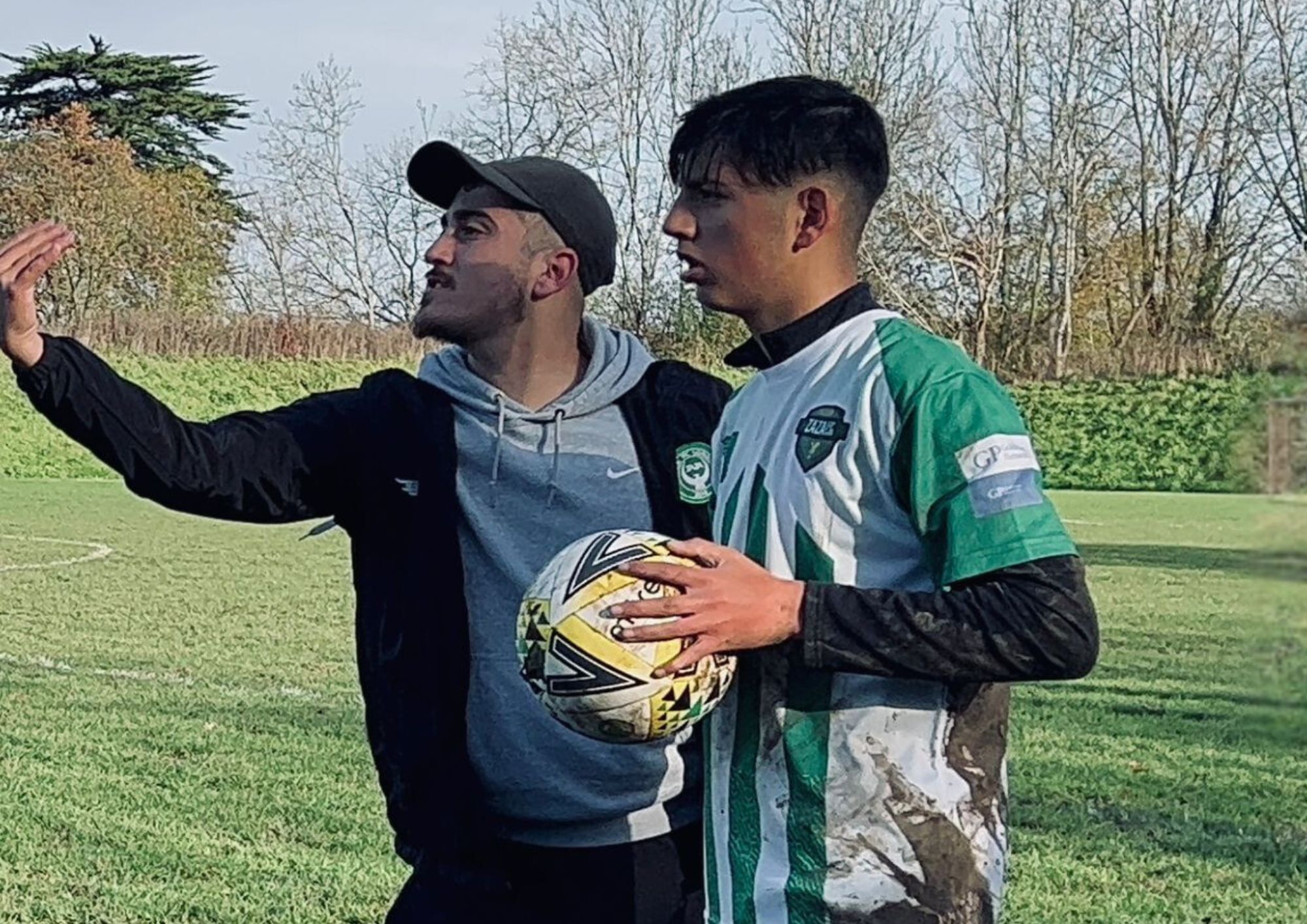How football can help the campaign against knife crime
COMMENT: A huge shift in priorities is needed if we are to ever stop the endless cycle of youth violence
Thursday, 24th October 2024

Abdul-Latif Pouget with manager Deniz Koca
GRASSROOTS football. Nothing can touch it. For so many people in Camden, the country and the world-over, following a club is a near 24/7 vocation.
For most, the roots of obsession are organised games people played first as children at school, then a bunch of mates meeting up to go down the park, or hanging about on your own at an astroturf pitch hoping to meet a new crowd.
For the seriously afflicted, high quality 11-a-side leagues are playing out on the weekends all over the city.
A football match is the only time the brain is truly relieved of all anxieties.
It is also the only time, other than sleep, that young people are not face-locked to a screen or phone.
There is a major issue with many community-run pitches being hogged by corporate groups at the expense of kids living around the area.
Thousands of boys and girls across Camden are each week kicked off their neighbourhood pitch that are block-booked by working people living out their dreams of youth.
The cost to each player of an organised game on a booked pitch, between £5-10, is not an insignificant amount if you are playing two or three times a week, come from a family struggling to make ends meet.
But when you compare that to the cost of a ticket to Arsenal – where the average seat is between £91 and £174 – the grassroots game is relatively affordable.
It is one of the last things left in this brutal city that young people can actually get involved in.
People who knew Abdul, the latest young man from Camden to be lost to sickening knife crime, said football meant the world to him, (Knife victim Abdul-Latif Pouget ‘was the type of player to calm situations down on the pitch’, October 24).
He would have enjoyed the fun of the game itself, the freedom of expression – particularly as a lively winger – the camaraderie with his teammates, and the familial support of a caring manager.
“Abz” might not have realised it at his young age, but playing football would have been an escape. Like so many other young people in Camden he may have known that sense of feeling out of place.
A huge shift in priorities is needed if we are to ever stop the endless cycle of youth violence. Football can help because young people have respect for it.
We need more protected spaces for young people to play and call their own.
We need accessible grants for people so they can get involved with club football from a young age.
Clubs too should be funded to dispense education, as was being done for free by the progressive Zaza FC.
We need to find more ways to give young people a proper stake in society, and they will respond.